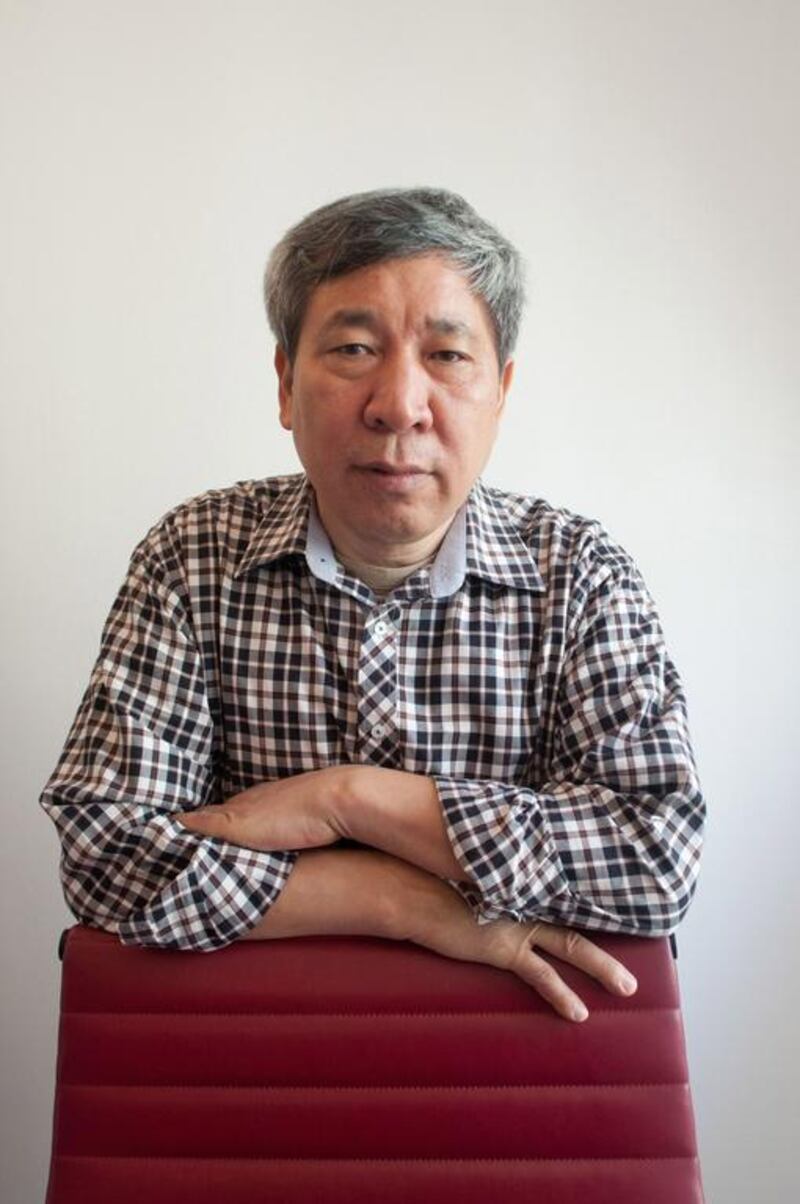In terms of subject matter, Yan Lianke's latest novel, The Four Books, is an original work of art. Unlike the glut of Chinese literature that deals with the decade-long Cultural Revolution, Yan's new book tackles the Great Leap Forward (1958-1961), an older, shorter and less artistically explored chapter in the country's history. This period of rapid industrialisation led to a nationwide famine that killed millions. As such, it is a topic no Chinese writer intent on seeing his work published should go near.
But Yan has gone near it, getting so close as to rigorously examine misguided policy directives and the ensuing human catastrophe. It's difficult to decide whether his approach is daring or reckless. According to the translator's note, Yan – whose previous novels have all fallen foul of the authorities – wrote this one "without trying to second-guess the censors". Unsurprisingly, The Four Books proved too toxic for mainland Chinese publishers and was released in Hong Kong and Taiwan only.
But once again, and no doubt to the chagrin of China's Central Propaganda Department, a Yan Lianke novel has gone West. Superbly translated by Carlos Rojas, The Four Books shows Yan on top satirical form.
The four books turn out to be manuscripts that either directly or figuratively document life in a re-education compound for intellectuals accused of being rightist "criminals". The novel is a patchwork of excerpts, a collection of varying testimonies and perspectives. Criminal Records is a journal written by a man called the Author who is tasked by the camp leader, a young boy known only as the Child, to write down anything incriminating about his fellow inmates. Along with this journal, the Author pens his novel Old Course, a far more candid and scathing account of the relentless dehumanising toil within the compound.
Complementing these extracts are fragments from anonymous manuscripts, Heaven's Child and A New Myth of Sisyphus – the former cataloguing the plight of the prisoners by warping and melding Chinese lore and Christian verse ("Thou shalt not flee"); the latter inviting the reader to draw parallels between the punishment meted out to the Greek king and the "Re-Ed" prisoners.
We see more allusive flourishes with the novel’s characters. Joining the Author inside are the Scholar, the Technician, the Musician, the Theologian and others who are defined by their former occupation. The result resembles a Bunyanesque allegory, a kind of Prisoners’ Progress, with the grim joke being the only progress each one is making is towards a grisly death.
Round-the-clock manual work nudges them nearer to total collapse. The Child spurs prisoners on to meet unrealistic production targets decreed by "the higher-ups". Anyone able to "raise ears of corn that were as large as a hammer, with grains as large as grapes" is permitted to return home. Anyone who attempts to escape, however, is punished with a golden bullet. Leisure time doesn't exist. The prisoners' "reactionary books" are burned. The Theologian faces a particularly severe punishment both for secretly reading the Bible and for keeping it concealed in a hollowed out copy of Marx's Capital – the "real bible".
All of which makes for hard reading. The Four Books is not a loveable book. Its main character is a snitch. Much of the narrative takes the form of a cruel and repetitive cycle of work, punishment and promised but withheld pleasures. It is as if Yan's aim is to grind the reader down.
Ironically, what keeps us reading is the misery, or at least the way it is conveyed – at times understated, at others unbridled, yet always with conviction. The sinister and volatile Child is a spellbinding villain. The famine in the novel's inevitable conclusion is as harrowing and as decimating as the Aids epidemic in Yan's 2011 novel Dream of Ding Village. In both novels there is a mounting intensity as characters are slowly but systematically extinguished.
Perhaps the book’s sole flash of humanity comes via the illicit and ultimately tragic love affair between the Musician and the Scholar. Their fleeting tale is transmitted in the most bittersweet language: “Like two fruits on separate trees, they were unable to be together until after they had been eaten by worms and fallen to the ground.” In contrast, when these two “adulterers” are exposed, the brutal repercussions play out in correspondingly blunt, stark prose.
Few rays of hope, then, and no happy ending. But those who last the course will find this novel bleak but powerful, disturbing yet compelling.
Malcolm Forbes is a regular contributor to The Review.
The Four Books is available on Amazon.
[ thereview@thenational.ae ]





